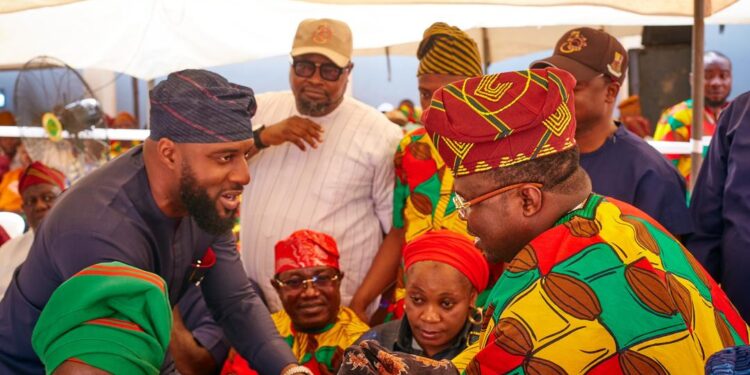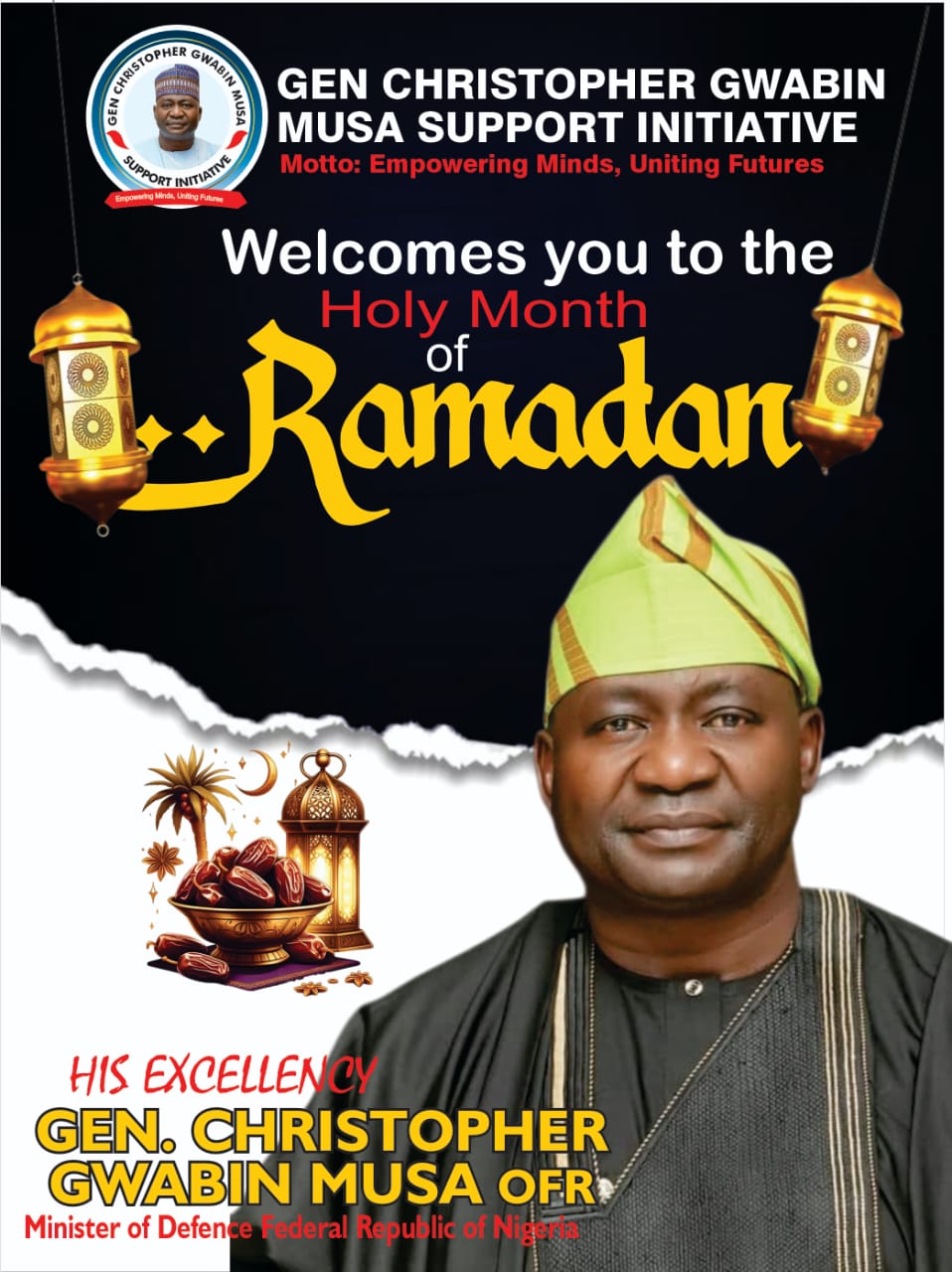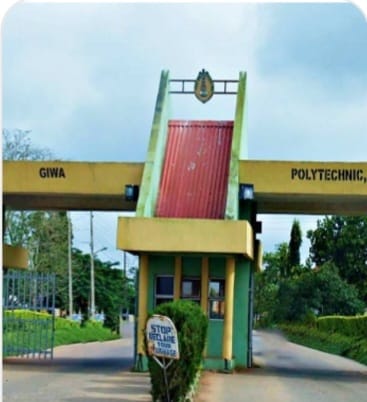society
Prophet Kingsley Aitafo Rolls Out 3 Days Prophetic Crusade

Prophet Kingsley Aitafo Rolls Out 3 Days Prophetic Crusade
society
Ajadi Hails Oyo Speaker Ogundoyin at 39, Describes Him as Beacon of Purposeful Leadership

Ajadi Hails Oyo Speaker Ogundoyin at 39, Describes Him as Beacon of Purposeful Leadership
A leading governorship aspirant of the Peoples Democratic Party (PDP) in Oyo State, Ambassador Olufemi Ajadi Oguntoyinbo, has congratulated the Speaker of the Oyo State House of Assembly, Rt. Hon. Adebo Edward Ogundoyin, on the occasion of his 39th birthday, describing him as “a symbol of resilience, maturity and purposeful leadership in Nigeria’s democratic journey.”
In a congratulatory message made available to journalists on Tuesday, Ajadi praised Ogundoyin’s steady rise in public service, noting that his emergence as Speaker at a relatively young age reflects the possibilities of responsible youth leadership when combined with discipline, vision and service.
“Rt. Hon. Ogundoyin’s leadership has shown that age is not a barrier to excellence,” Ajadi said. “At 39, he stands tall as one of the most impactful Speakers in Oyo State’s history—calm, inclusive and deeply committed to democratic ideals.”
Ogundoyin, who represents Ibarapa East State Constituency under the Peoples Democratic Party, has served as Speaker since 2019 and was re-elected to lead the 10th Assembly in June 2023. His tenure has been marked by legislative stability, improved executive–legislative relations and youth-inclusive governance.
Ajadi commended the Speaker for fostering unity within the Assembly and prioritising laws that strengthen grassroots development across Oyo State. “His humility, accessibility and focus on people-oriented legislation have earned him respect beyond party lines,” he said. “He exemplifies the kind of leadership Oyo State needs—one anchored on service, accountability and progress.”
The governorship aspirant further described Ogundoyin as a rallying point for young Nigerians aspiring to public office. “In a country searching for credible leaders, Ogundoyin’s story offers hope,” Ajadi added. “He has shown that when young leaders are trusted with responsibility, they can deliver stability and results.”
Ajadi wished the Speaker many more years of good health, wisdom and greater service to Oyo State and Nigeria at large, praying that his leadership journey continues to inspire a new generation of public servants.
Ogundoyin, one of the youngest Speakers in Nigeria, has continued to attract goodwill messages from political leaders, civil society actors and constituents, as Oyo State marks another year in the life of a lawmaker widely regarded as a steady hand in the state’s legislative affairs.
society
GEN CHRISTOPHER GWABIN MUSA SUPPORT INITIATIVE JOINS MUSLIM UMMAH IN RAMADAN GREETINGS, CALLS FOR PRAYERS FOR NATIONAL PROGRESS

*GEN CHRISTOPHER GWABIN MUSA SUPPORT INITIATIVE JOINS MUSLIM UMMAH IN RAMADAN GREETINGS, CALLS FOR PRAYERS FOR NATIONAL PROGRESS*
The Gen Christopher Gwabin Musa Support Initiative (GCGMSI) has extended heartfelt wishes of Ramadan Mubarak to the Muslim Ummah across Nigeria, while earnestly urging prayers for the success and development of the administration of President Bola Ahmed Tinubu.
This message was conveyed in an official statement signed by the Initiative’s Convener, Ibrahim Dahiru Danfulani, the Sadaukin Garkuwan Keffi/Betara of Biu, and released to the press.
The statement highlighted a powerful exhortation from the Initiative’s Grand Patron, His Excellency General Christopher Gwabin Musa, OFR, the Minister of Defence. General Musa called on the Muslim faithful to deeply reflect upon and embody the profound teachings of the Prophet Muhammad (Peace Be Upon Him) throughout the sacred month of Ramadan and in their daily lives beyond. He emphasized the core Islamic values of piety, charity, tolerance, and unity as essential pillars for personal and national well-being.
The GCGMSI, a foremost advocacy group renowned for its unwavering commitment to national cohesion, reiterated its foundational mission of uniting Nigerians across all ethnic, religious, and social divides. The Initiative remains at the forefront of fostering dialogue, understanding, and a shared sense of patriotism. A key pillar of this mission is its dedicated focus on youth enlightenment, empowering the younger generation with values of civic responsibility, peace, and constructive engagement for a brighter national future.
The statement further underscored the steadfast commitment of its Grand Patron, General Christopher Gwabin Musa, to the ideal of “One Nigeria.” As Minister of Defence and a respected national figure, General Musa continues to champion policies and actions aimed at securing the nation and promoting inclusive development that leaves no citizen behind. His leadership, both within the GCGMSI and in his official capacity, is firmly anchored in the belief that Nigeria’s strength lies in its unity and collective purpose.
The Gen Christopher Gwabin Musa Support Initiative seizes this holy period to reaffirm its dedication to supporting initiatives that promote peace, security, and the overall socio-economic agenda of the Federal Government, praying for divine guidance for the nation’s leaders.
society
Ondo Poly Staff Protest Exclusion from ₦73,000 Minimum Wage

Ondo Poly Staff Protest Exclusion from ₦73,000 Minimum Wage
By George Omagbemi Sylvester | Published by SaharaWeeklyNG
Academic and non‑academic staff of Rufus Giwa Polytechnic, Owo, Ondo State, brought the institution to a standstill on Monday as they protested against the alleged non‑implementation of the new national minimum wage. The demonstration highlighted growing tensions between the workforce and the state government over wage policy and fairness.
The protest involved staff under the Senior Staff Association of Nigeria Polytechnics (SSANIP) and the Academic Staff Union of Polytechnics (ASUP). Workers barricaded the main gate, displayed placards, and chanted solidarity slogans, demanding inclusion in the ₦73,000 minimum wage already being paid to other state employees since late 2024.
Union leaders argue that the state’s decision to exclude polytechnic staff from the new wage structure is discriminatory and legally unsupportable. SSANIP Chairman Comrade Saka Olokungboye Nurudeen described the situation as economically unsustainable, pointing out that many staff struggle to meet rising living costs and family responsibilities.
ASUP Chairman Comrade Ade Arikawe called on Gov. Lucky Aiyedatiwa to intervene and enforce the minimum wage across all state institutions. “The minimum wage is backed by law and should not be treated as a privilege,” he said, emphasizing that selective application undermines morale and productivity.
The rector of the polytechnic, Prof. Igbekele Ajibefun, acknowledged the workers’ grievances, confirming that discussions with union leaders were ongoing and that their concerns would be escalated to the state government for urgent consideration.
This protest is not unprecedented. In 2025, workers at the polytechnic staged an indefinite strike over unpaid salary arrears and the previous failure to implement the national minimum wage, warning that continued neglect could trigger institutional decline.
Labour experts argue that such disputes expose broader structural weaknesses in public‑sector wage administration. Renowned economist Joseph Stiglitz has observed, “When wages fail to keep pace with living costs, the result is not just hardship, but systemic inefficiency and social instability.” Similarly, labour scholar Guy Standing warns that inconsistent wage policies create a “precariat” class; workers trapped in economic insecurity despite formal employment.
In the context of Ondo State, where some civil servants reportedly receive the new minimum wage while polytechnic staff remain on obsolete pay scales, these warnings resonate sharply. Workers contend that the minimum wage, once enacted, should serve as a universal baseline not a selective benefit. Non‑implementation risks legal challenges, labour unrest and disruption to public education.
For the protesting staff, the issue goes beyond salary figures. It is about equitable treatment, dignity, and adherence to the rule of law. The peaceful protest, though disruptive to campus activities, reflects a determined insistence that the law apply uniformly to all state employees.
The unions have signalled that their action will continue until the state government addresses their demands. Whether the Ondo State authorities respond swiftly or allow the dispute to escalate will likely determine not only the academic calendar at Rufus Giwa Polytechnic but also the broader stability of labour relations across the state’s tertiary education sector.
-

 celebrity radar - gossips6 months ago
celebrity radar - gossips6 months agoWhy Babangida’s Hilltop Home Became Nigeria’s Political “Mecca”
-

 society6 months ago
society6 months agoPower is a Loan, Not a Possession: The Sacred Duty of Planting People
-

 news6 months ago
news6 months agoTHE APPOINTMENT OF WASIU AYINDE BY THE FEDERAL GOVERNMENT AS AN AMBASSADOR SOUNDS EMBARRASSING
-

 Business6 months ago
Business6 months agoBatsumi Travel CEO Lisa Sebogodi Wins Prestigious Africa Travel 100 Women Award









